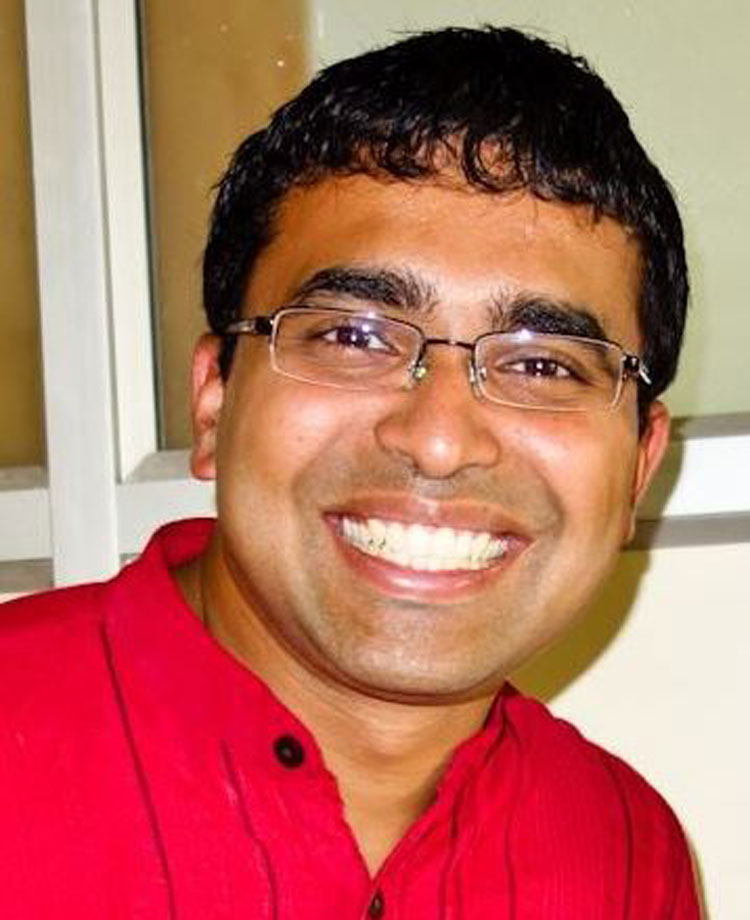The Indian-American doctor deported three years ago on charges of preaching Christianity and conducting conversions has told The Telegraph it took him and his family a long time to recover from being “ripped away from everything we knew”.
Dr Christo Thomas Philip, now relieved after Delhi High Court restored his Overseas Citizen of India card on Tuesday and reminded the government that “India is a secular country”, said it might be a while before he can return.
In an email from Texas, he underlined India’s lack of critical-care specialists, the capacity in which he was working in the Bihar town of Raxaul near the Nepal border. After struggling for months to replace him, the hospital eventually appointed an anaesthetist.
Of his shock deportation in April 2016, Philip wrote: “That was one of the darkest moments in my life to have my freedom taken away even though I had done nothing wrong except sacrifice a comfortable and lucrative life in the US as an emergency physician to serve those that had no one to care for them in India.”
Philip, who was born in Kerala in 1982 but graduated in Minnesota, had quit his medical practice in the US and moved with his family to Raxaul in 2014 to work at the Duncan Hospital.
On Thursday, Justice Vibhu Bakhru held that as an OCI, Philip had the same fundamental rights as Indian citizens to “practise his faith and (that) his rendering medical service, even if it is for furtherance of his religion, cannot be denied”.
He said the cancellation of Philip’s card and his deportation for “evangelical and subversive activities” was “wholly perverse and militates against the secular values engrafted in the Constitution”.
Philip recalled how he was denied entry at Delhi airport on April 26, 2016, after returning from a conference in Greece with his wife and three children.
“It was hard to watch my three young children crying, not knowing when they would see me again. It was hard to see my wife knowing that there was nothing she could do -– realising that I had never been this far away from her since we were married,” he wrote.
While Philip was put on a plane to Istanbul, from where the family had just arrived on a connecting flight, his wife and children travelled to Raxaul to pack up. They were reunited in Nepal after 10-11 days.
Philip is now assistant clinical professor of emergency medicine at the University of Texas Southwestern Medical Centre and a consultant with the Charlton Methodist Hospital in Dallas.
“It was difficult to suddenly be ripped away from everything we knew — my job, our friends, our home, all of our worldly possessions and suddenly be displaced back to the US. The entire ordeal of shifting back to the US and finding a new home and establishing our life in the US cost well over (Rs) 20 lakh,” he wrote.
Duncan Hospital, where Philip worked in Raxaul, is an 89-year-old missionary hospital catering to 400 Indian and Nepalese outpatients daily. It’s the main health facility in an area where tuberculosis, leprosy, typhoid and HIV are prevalent and bites by kraits and cobras are common.
“My primary responsibilities at Duncan were to train and supervise the junior doctors and to oversee the care of patients in the casualty department and intensive care unit,” he wrote.
After his deportation, “the hospital went without a critical care specialist for the next four months even though Duncan is one of few hospitals in that entire region (serving a catchment population of over 11 million) that had advanced critical care facilities, including the ability to care for patients on a ventilator”.
Philip added: “Emergency medicine is a relatively new specialty in India with few emergency-medicine-trained physicians currently working in the country…. Much of the work we pioneered at Duncan in training junior doctors and nurses in emergency medicine and critical care were cut short after my deportation.”
He said he was unlikely to return immediately, having adopted six children after returning to the US.
“Our hope is to one day be able to return back to serve the poor and marginalised who seek care at Duncan Hospital but it will be some time before we are able to travel again as we help our new children heal from the trauma they endured during their time in foster care.”
The time spent fighting the case, during which he could not visit his family in Kerala, has left him with little faith in the Indian government.
“They claimed that I was a national security threat to India and thus they did not need to even inform me as to what I had allegedly done wrong that necessitated being blacklisted from India,” he said.
“When the Delhi HC finally compelled them to give reasoning for the decision, they then accused me of ‘carrying out missionary activity in India which is against the law of the land’. This was humiliating for me and my family as all I ever wanted to do was to be able to provide good medical care for the marginalised in rural Bihar.”
He added: “Of course, I’m a deeply religious person and I follow the teachings of Christ, which motivate me to care for those that others have forgotten and to love them in the way that God loves me.”











